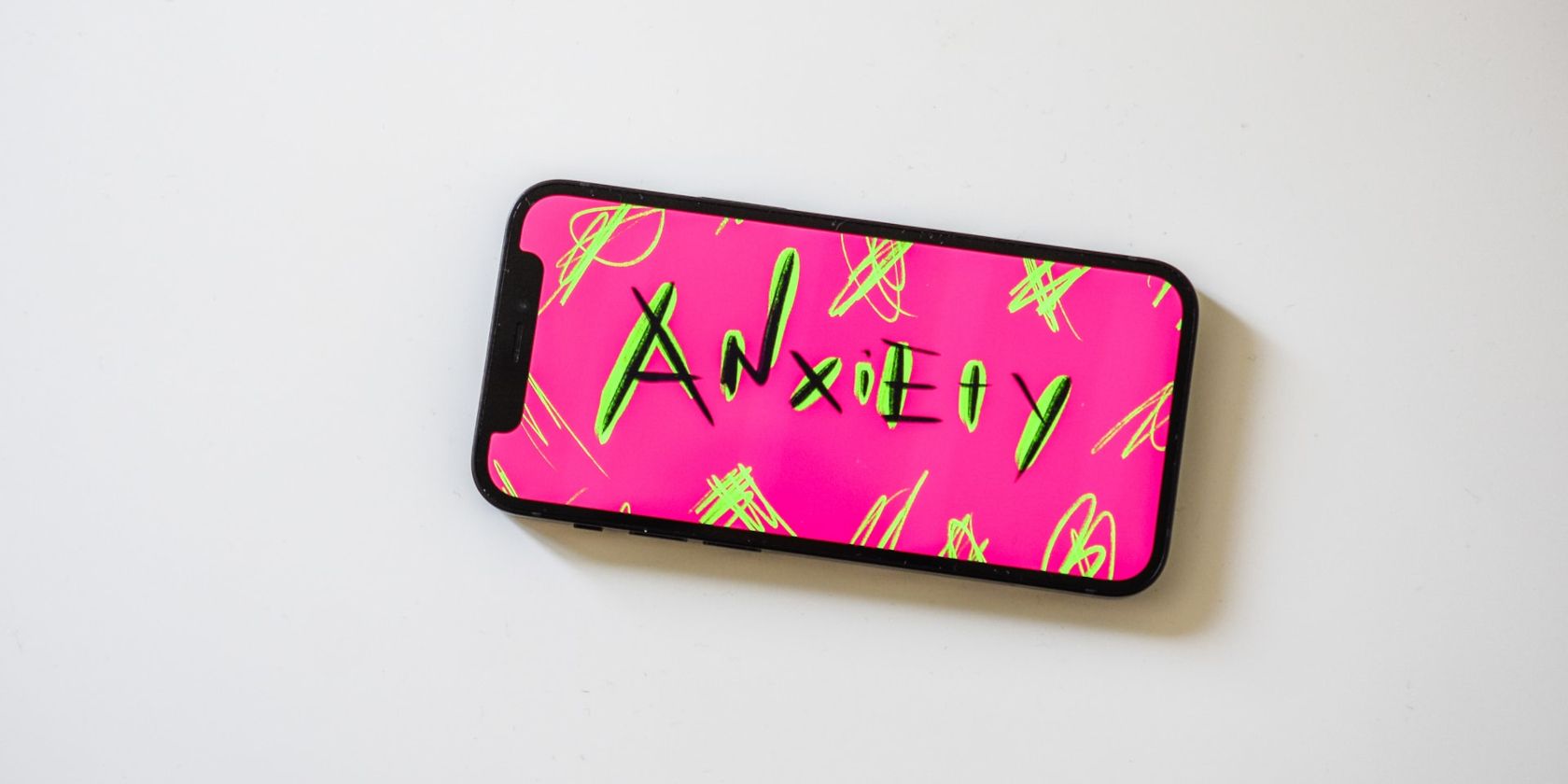Your mental health is important and deserves the best attention possible from you and third parties. There are services, however, that claim to support your emotional wellbeing without fully understanding what it takes.
Mobile apps have the same problem. There are dozens of apps that aim to provide mental health support, but not all deliver what people need. Unfortunately, it's hard to know if they're good until you try them.
Learn about the boxes a mental health app is supposed to tick to avoid being useless and see examples of Android and iOS apps that miss the mark.
What Makes a Mental Health App Good?
Different people have different mental health priorities. This means that deciding whether an app is good or bad is fairly subjective.
That said, there are preferences that many users have in common. Some are related to a software’s functionality and others to the quality of the services it provides.
A study published in the Health Informatics Journal in 2020 can help paint a clearer picture of what mental health apps should offer to make users happy. Based on how the study’s subjects responded to a range of such programs, the best qualities these apps can include are the following:
- Variety of tools and activities for mental health support
- Accurate information and results
- Clear and reliable scientific knowledge and endorsement
- Multiple features that let users personalize their experience
- Offline mode
- Strong privacy and security measures
- Good customer service
- Social support that also allows anonymity
- Regular updates
- Variety of ways to access the app’s services
- Value for money
Examples of Useless Mental Health Apps to Avoid
At the end of the day, what people need is to be able to ask for help through their mental health app without delays, obstacles, or wasting money. Let’s look at nine mobile services that fall short in one way or another.
1. Talkspace
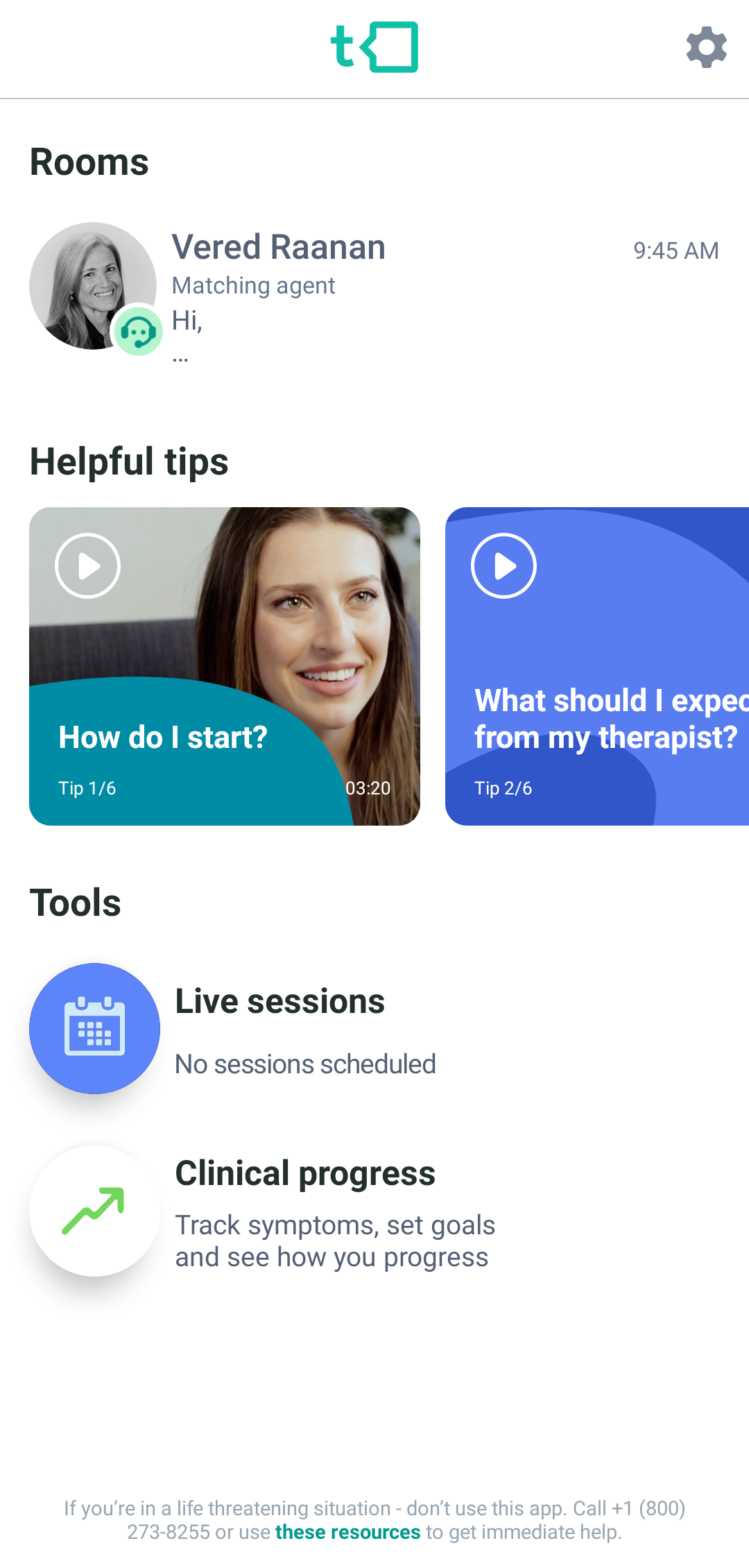
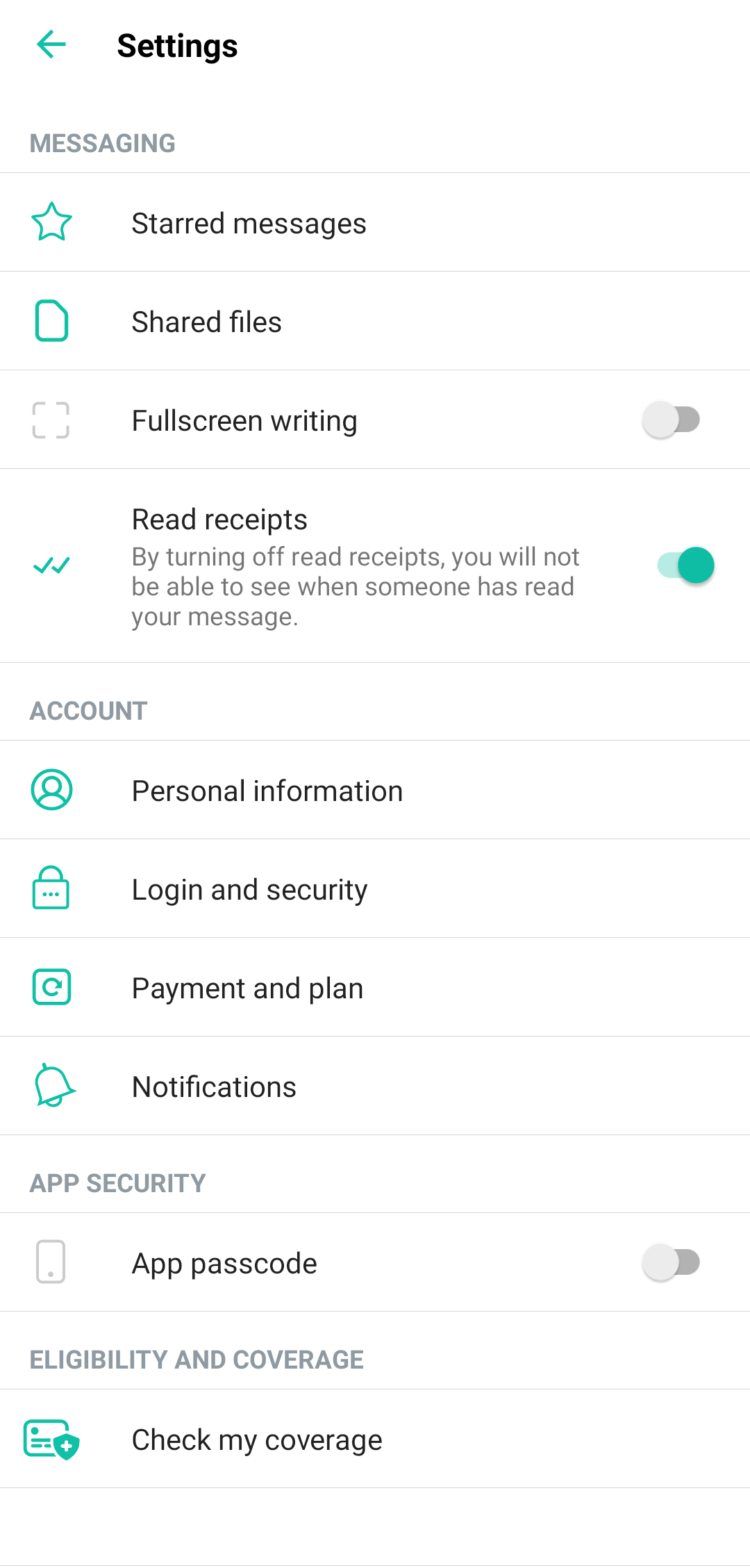
Even though Talkspace’s basic functions—like matching you with a therapist, keeping track of your progress, and offering a few adjustable settings—are handy, the app focuses on providing online therapy sessions and not much else.
That’s not to say that apps designed for a specific purpose aren’t effective, but in this case, there isn’t a great range of options to make Talkspace a go-to therapy app or justify paying its subscription when you can get better support elsewhere.
There are also technical issues to consider. You have to sign up to use Talkspace; that automatically makes it less accessible than other mental health apps. The registration process also takes a few tries to work correctly and let you onto your account.
Unfortunately, glitches—and bad matches—are recurring problems with Talkspace, and functional problems build mistrust in any program. Put all these flaws together, and you have a mental health app to avoid.
Download: Talkspace for Android | iOS (Free, subscription available)
2. Mindspa
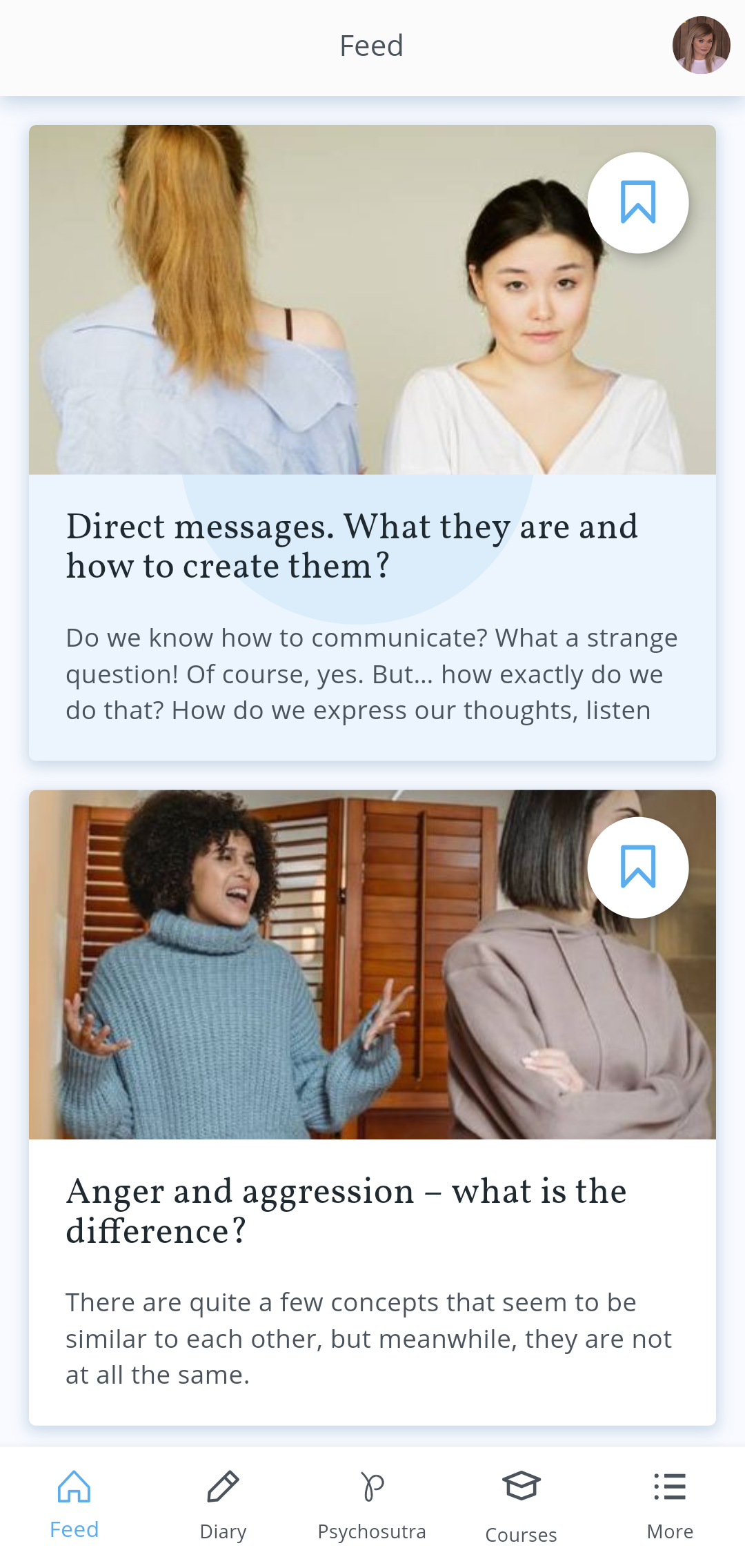
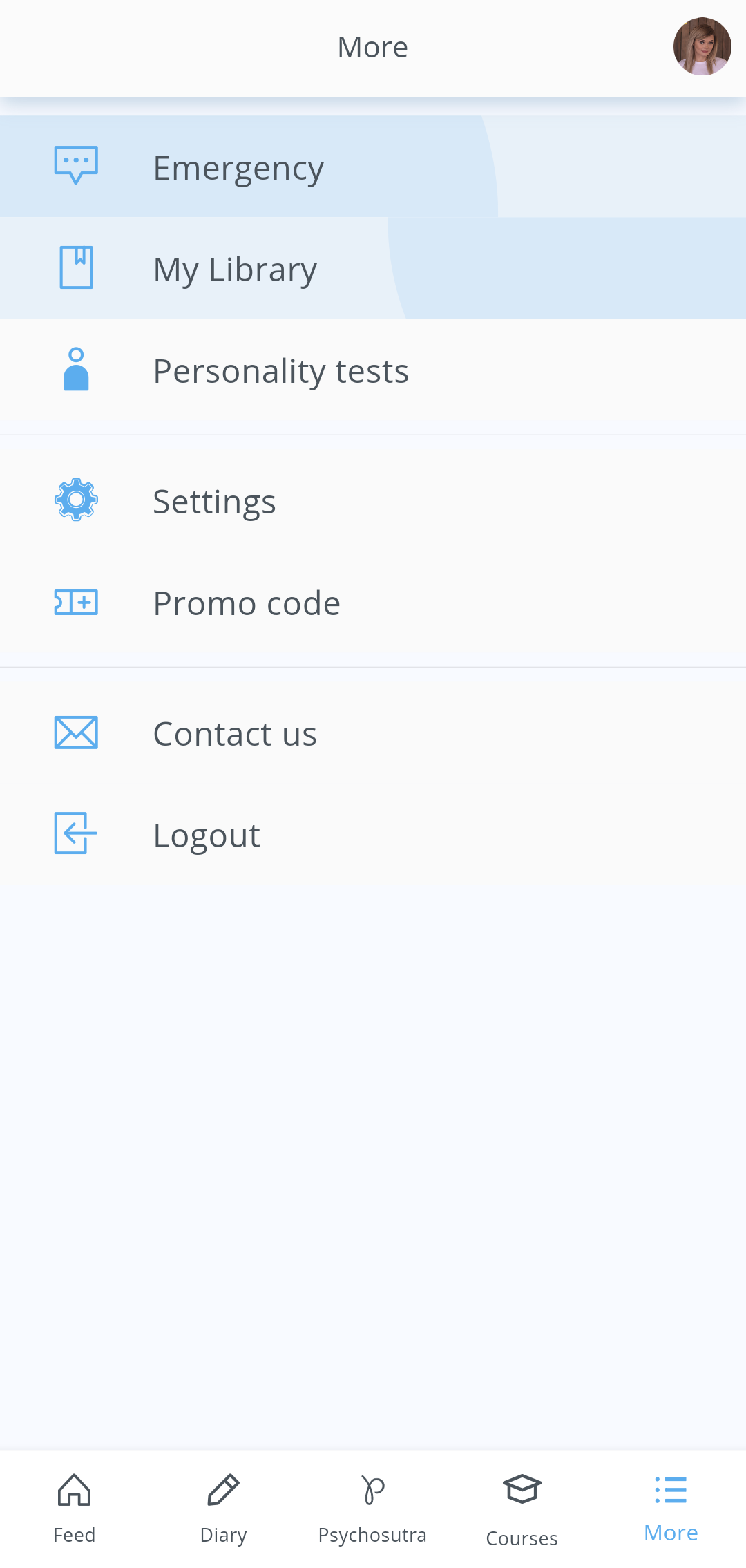
No matter how multifunctional an app is, if it demands that you sign up before showing you any of its features, it instantly excludes lots of people. This is the case with Mindspa.
It’s a major problem for mental health platforms, considering some users might be living with anxiety or other conditions that make them suspicious of strangers, new technology, and more.
After you register, Mindspa offers free articles and tools to help you tackle your emotional struggles. Unfortunately, this assistance is limited to basic tips, form-filling, and a chatbot.
Mindspa is more of a quick and easy self-help toolkit. To get more meaningful support through its specialized courses, you have to pay up.
Download: Mindspa for Android | iOS (Free, in-app purchases available)
3. DiveThru
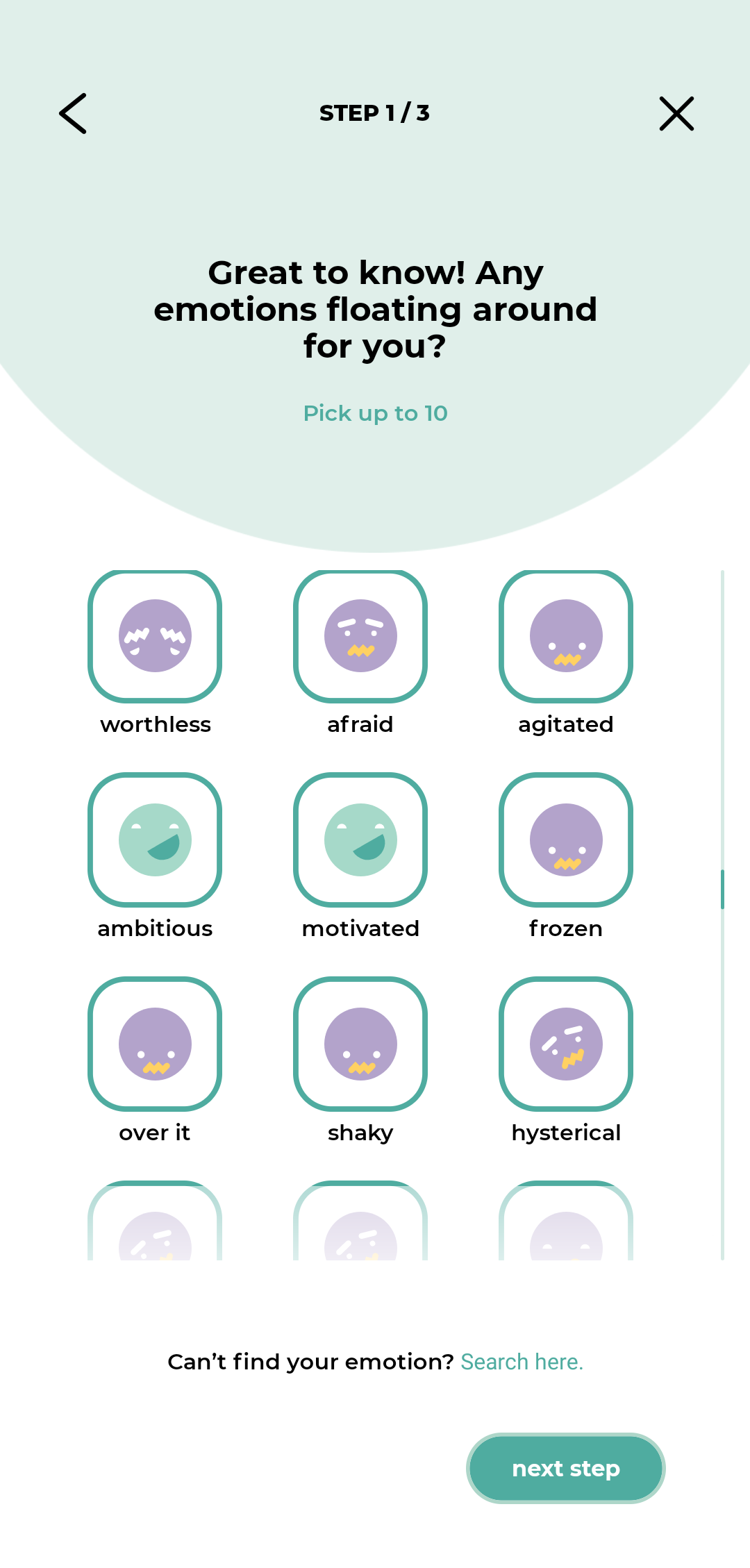
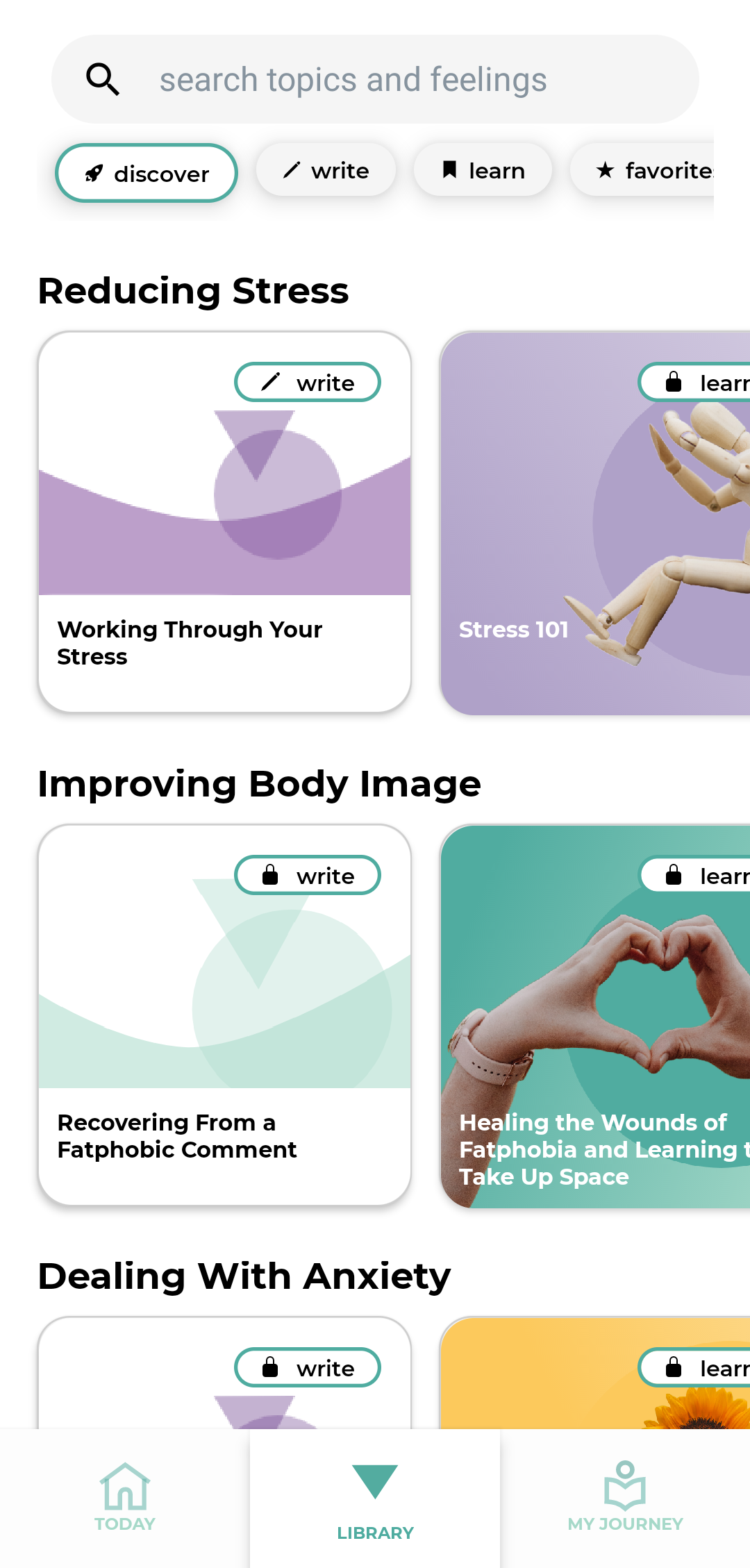
DiveThru is another example of an app that focuses on a specific part of mental health while excluding other key aspects of the healing process.
At first glance, it's a mood tracker with a bunch of exercises and educational material. The premium version unlocks access to therapists if you’re willing to pay a monthly or annual fee.
It’s not a bad deal, but it does feel like baiting. While the daily activities on DiveThru are good for coping with what each day throws at you, there are no social features among its free offerings.
In other words, its therapeutic sessions are always one-sided—unless you pay up. This is not ideal, especially considering how important meaningful interaction is to understanding and resolving psychological issues.
If you need in-person support for your mental health, you're going to have to pay for DiveThru.
Download: DiveThru for Android | iOS (Free, subscription available)
4. Feeling Good: Mental Health
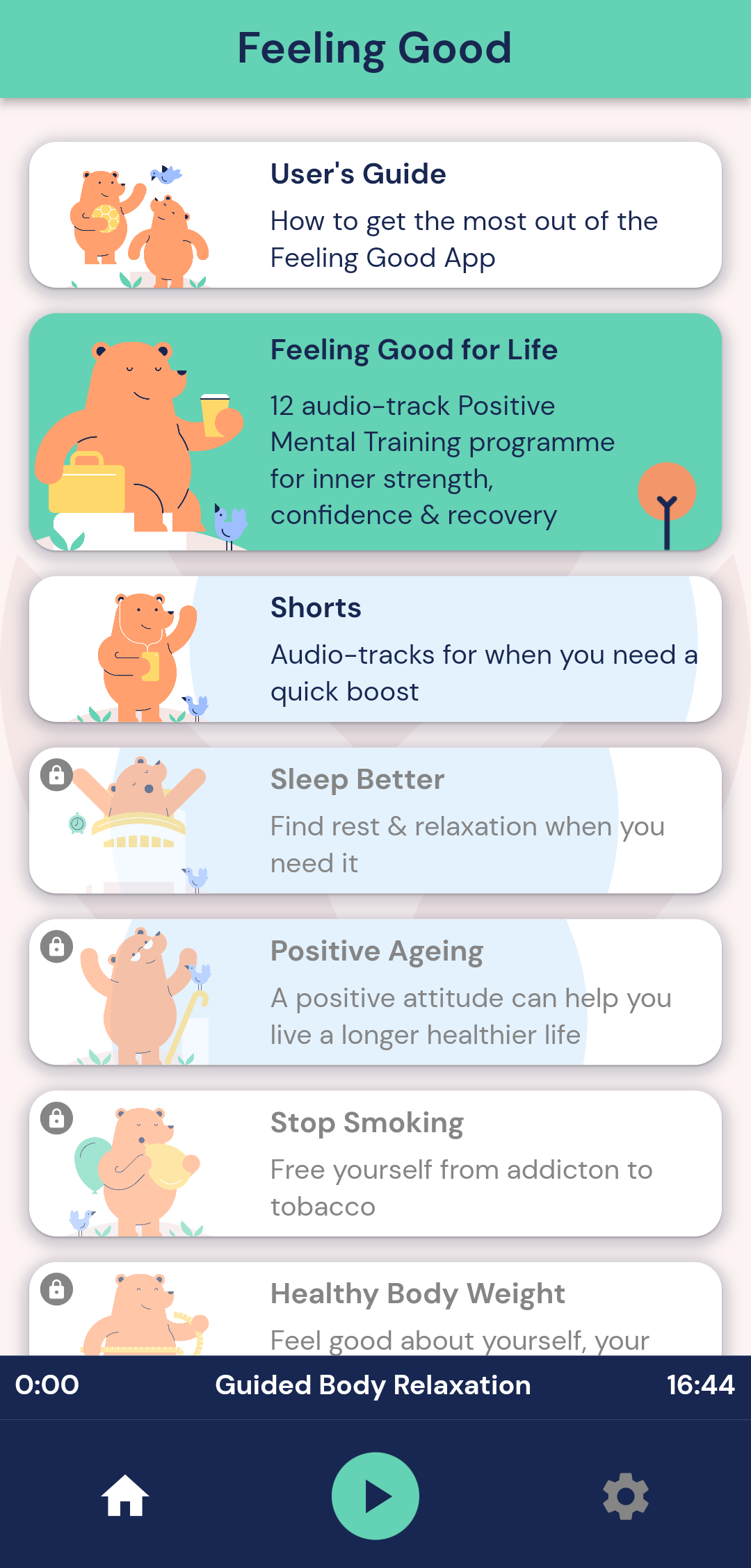
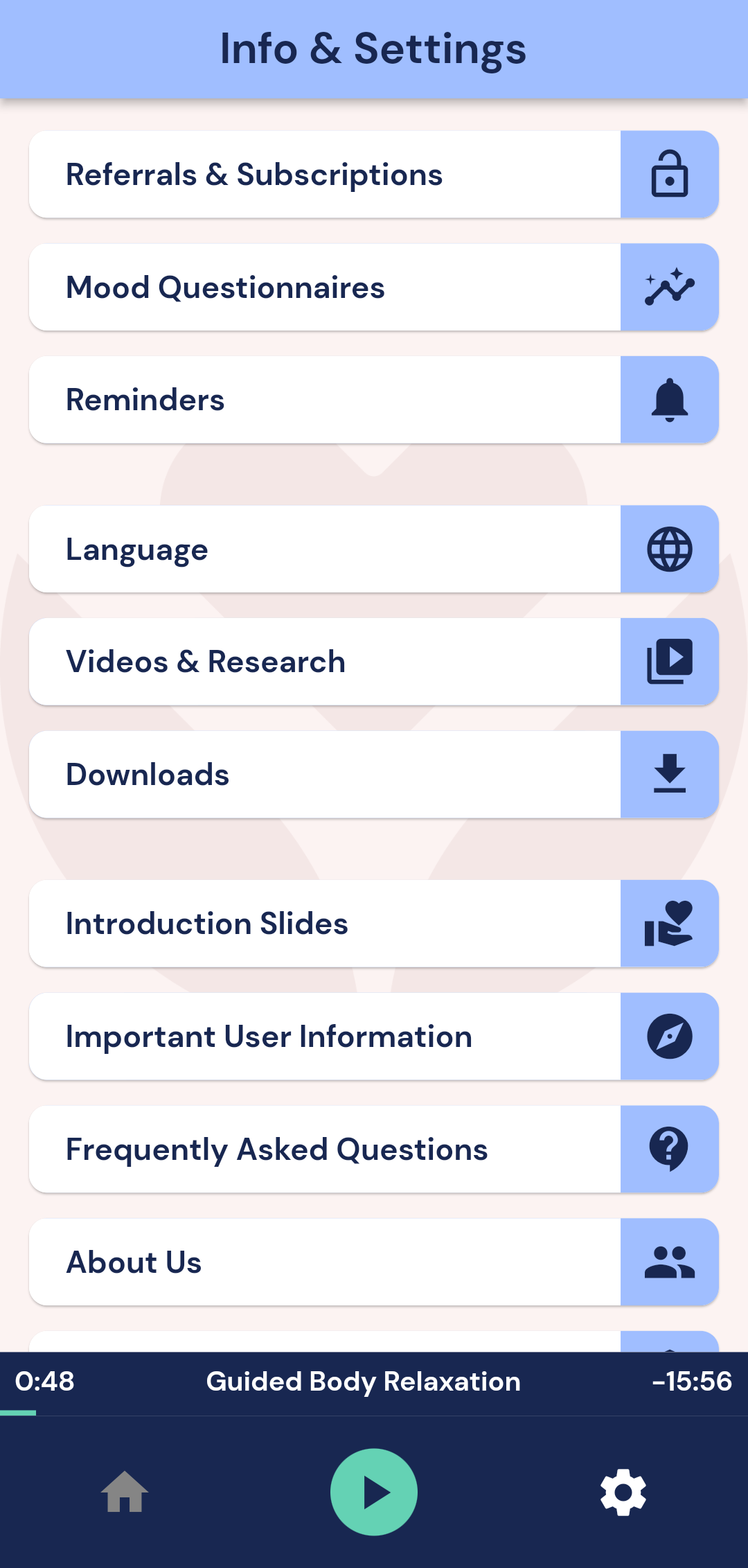
Other apps to avoid are those with poor execution. Look at it this way: when you’re ill, doesn’t a doctor’s bedside manner and professionalism affect your confidence?
It’s the same for apps marketed as psychological help. When a service states that it uses proven treatments like cognitive behavioral therapy (CBT) and Olympic-standard positive mental training (PosMT), expert delivery is the least you’d expect.
Unfortunately, Feeling Good: Mental Health fails at this. While it does mention some accreditation to inspire trust, the voices guiding the meditations are robotic and often wrong in pronunciation and terminology.
If your goal is to improve your mental health, you’ll find much better services out there to spend time and money on.
Download: Feeling Good: Mental Health for Android | iOS (Free, in-app purchases available)
5. Happify
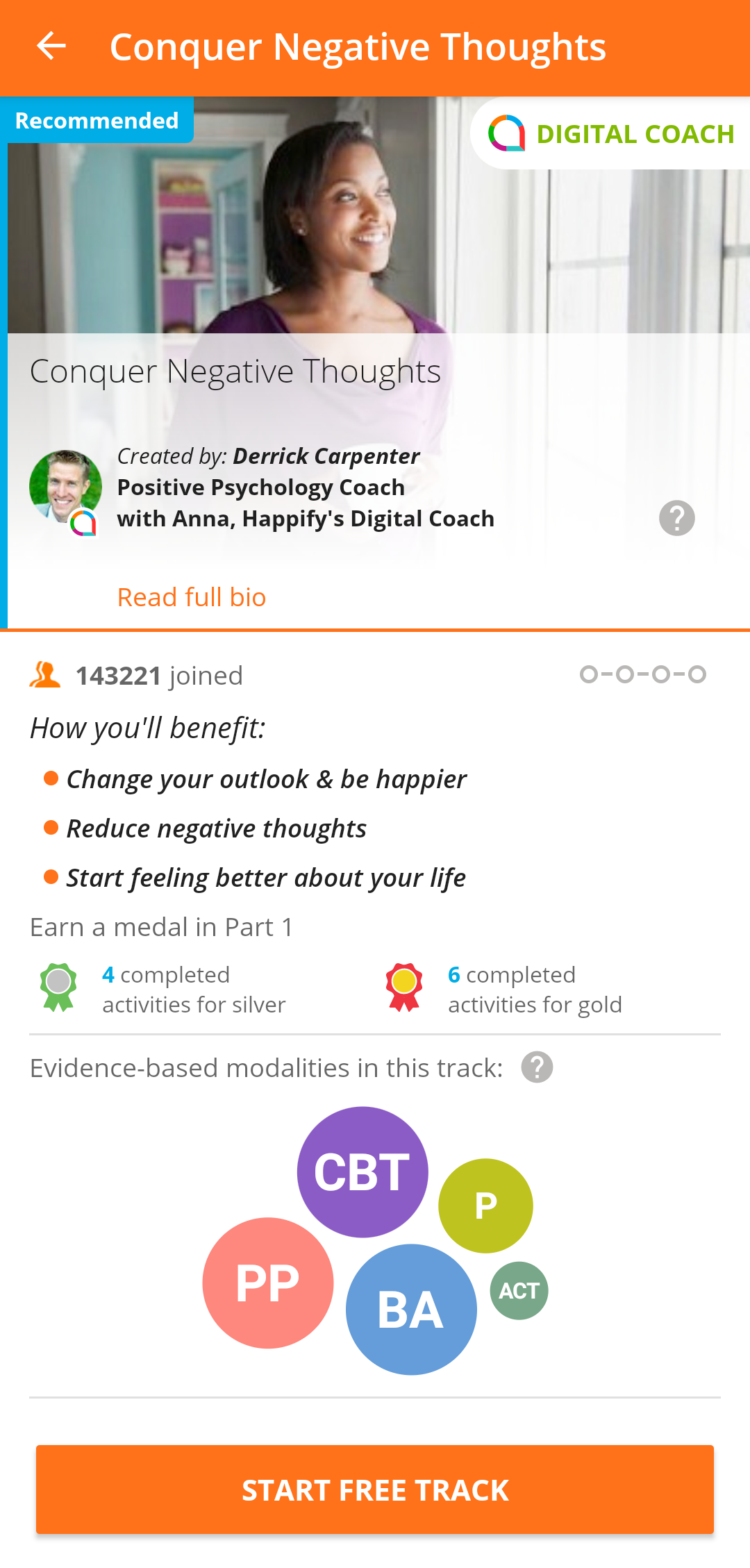
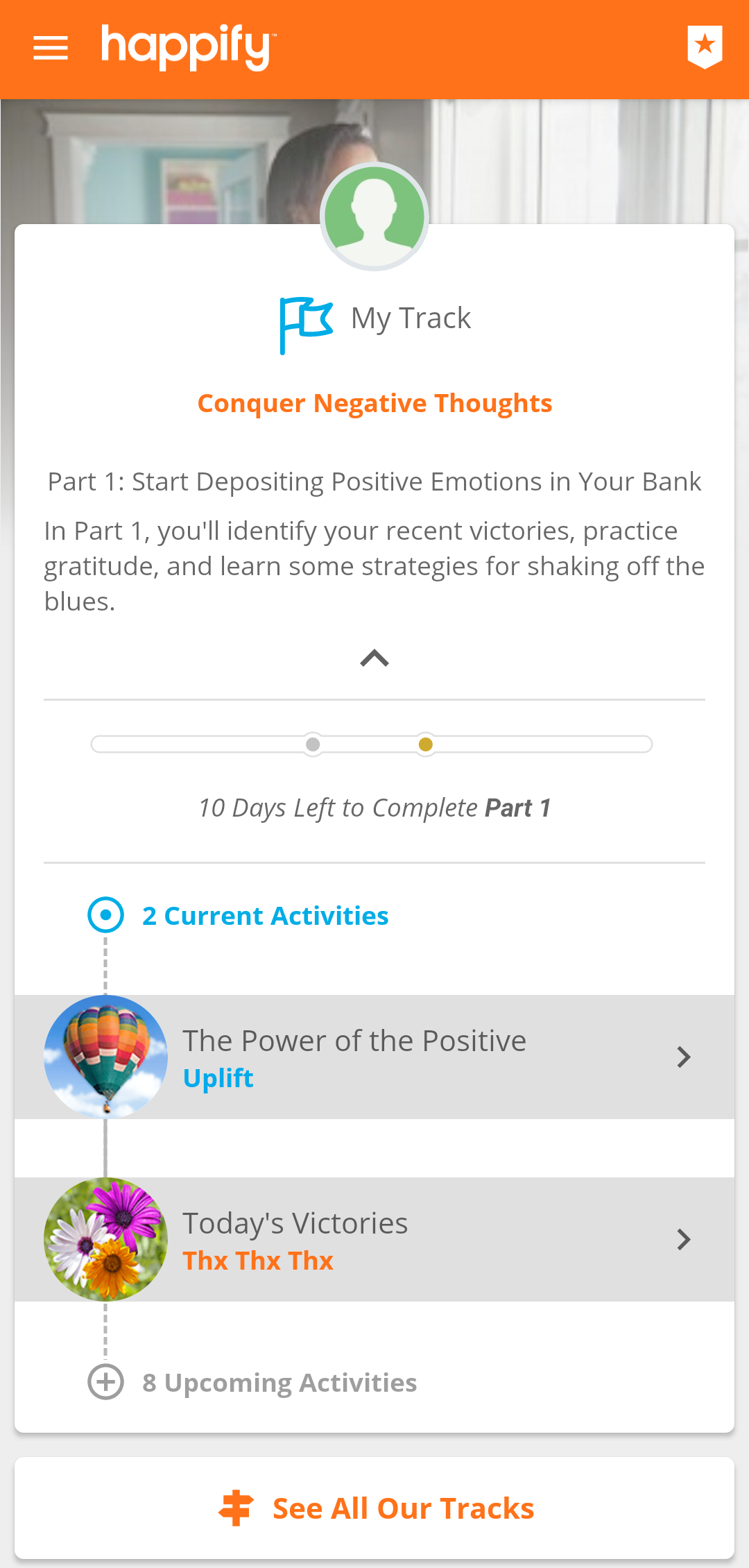
Some mental health apps offer lots of features to keep you occupied—including unlockable premium content—but don’t actually deliver worthwhile insights to boost your emotions and mindset. Happify is one of those.
This app resorts to mini-games and basic bot-based questionnaires to assess your situation and instill happy thoughts. However, the answers you get are weak and the only benefit of spotting positive words on floating balloons is entertainment.
You can get the same tools with a better user experience and deeper psychological help from other services.
Download: Happify for Android | iOS (Free, subscription available)
6. 7 Cups
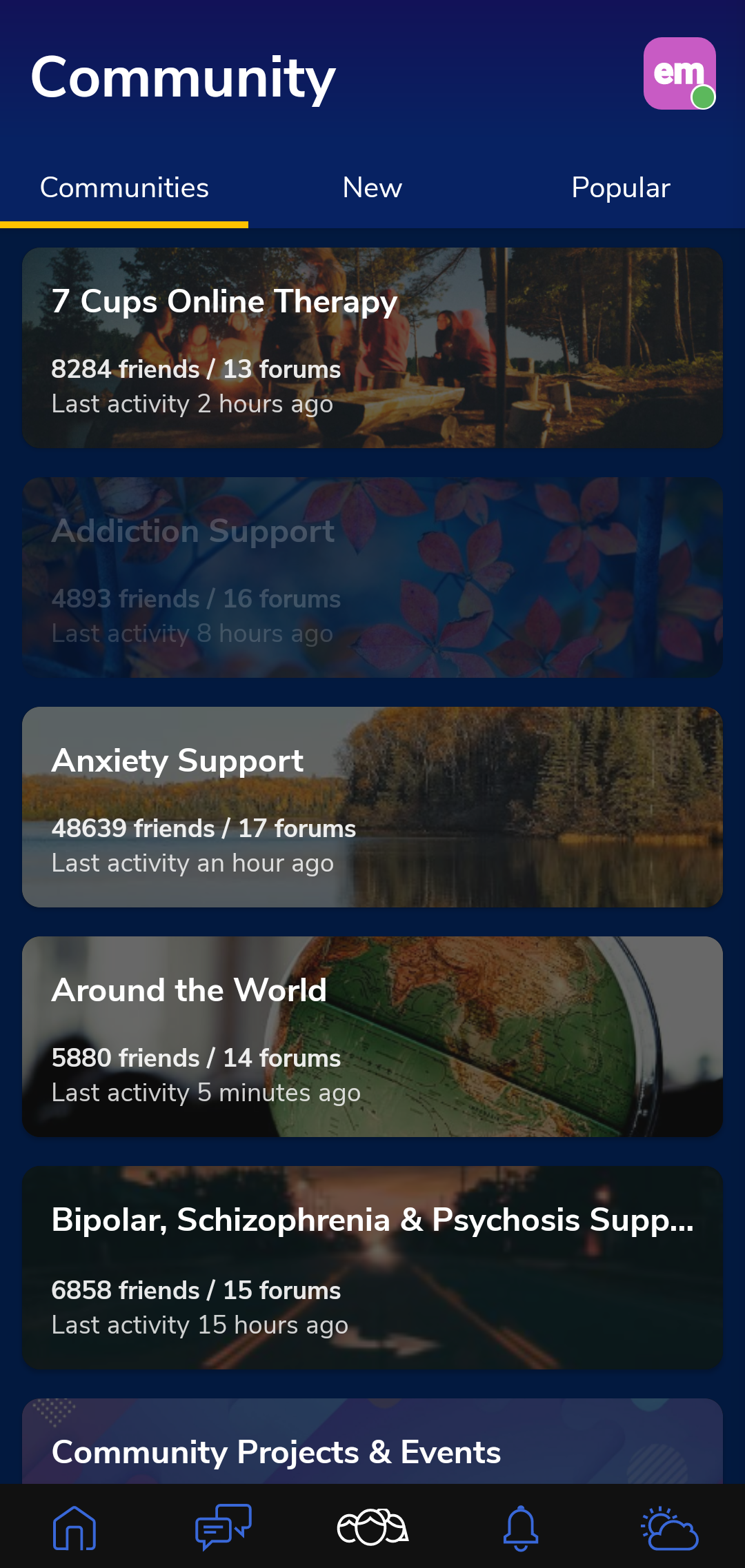
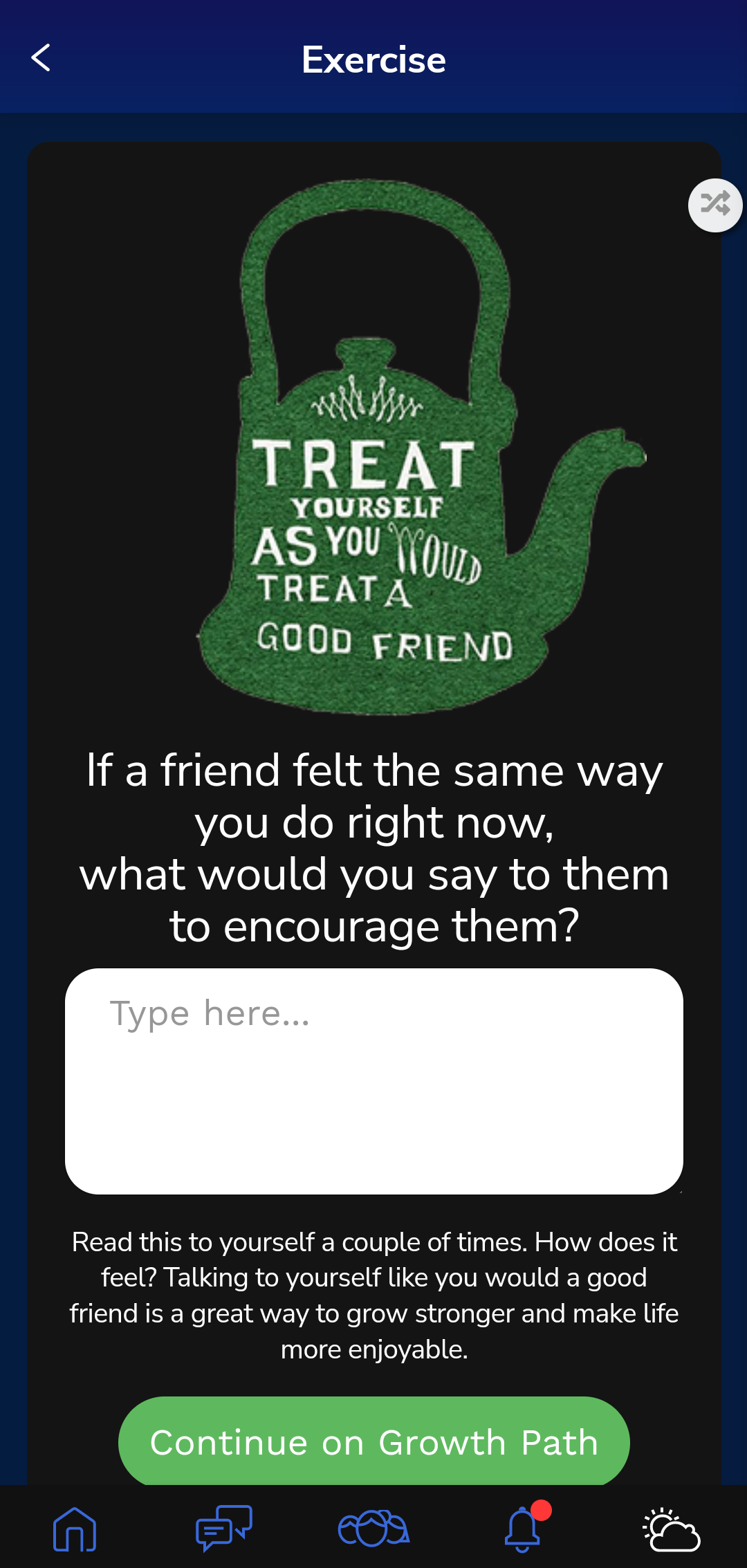
Sometimes you need to talk to real people to deal with what’s going on in your heart and mind. This is where social apps come in handy, and even more so if they’re user-friendly and offer expert advice.
While 7 Cups is a valuable platform for chatting with like-minded people on all things mental health, it’s complex to navigate and prone to glitches. More importantly, you don’t get input from a professional therapist unless a member happens to be one or you pay for sessions.
In other words, the free version of 7 Cups is good for general conversation, but there’s no guarantee that what you hear will be helpful. If you’d rather not risk reading incorrect information, you’re better off with a proper mental health service.
Download: 7 Cups for Android | iOS (Free, subscription available)
7. Thinkladder
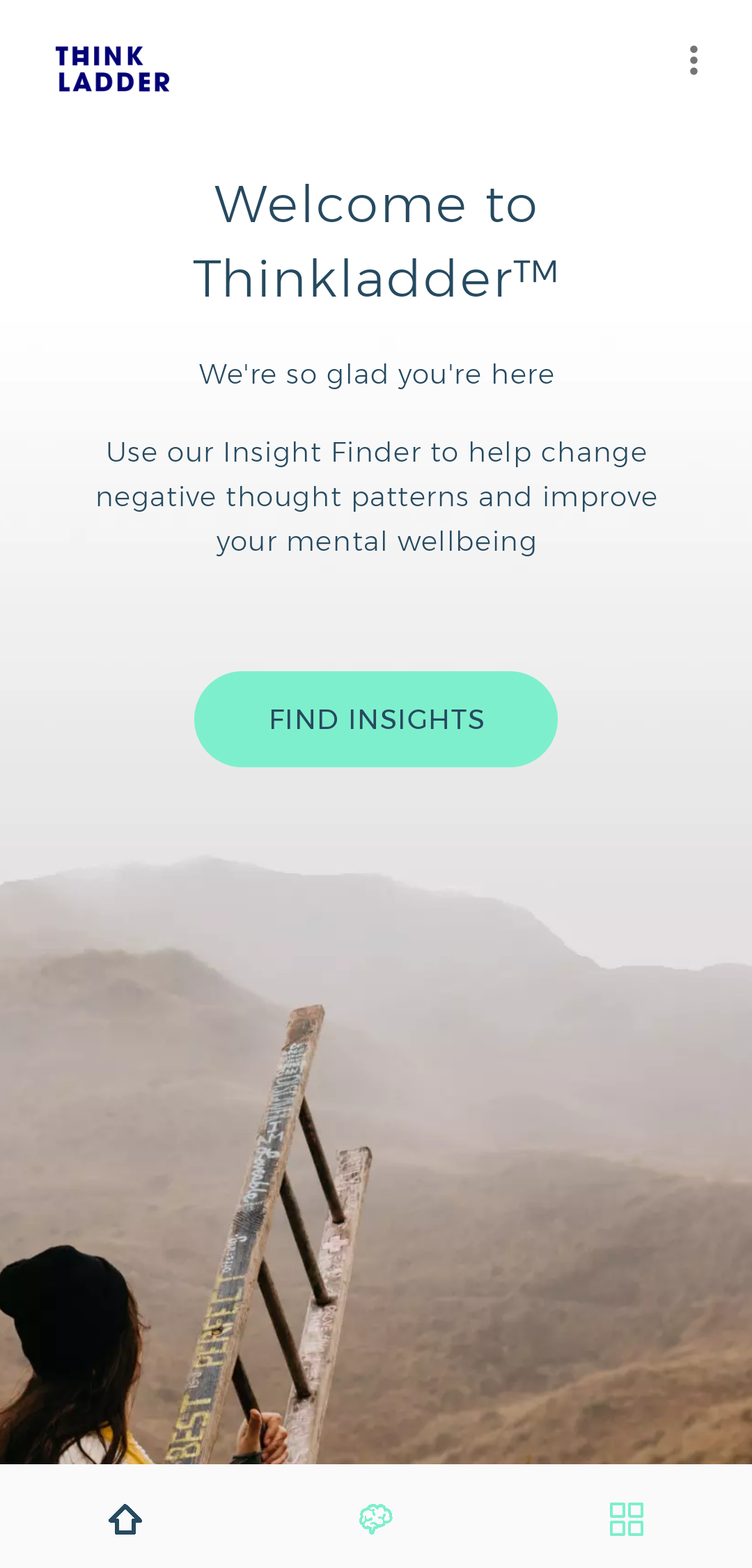
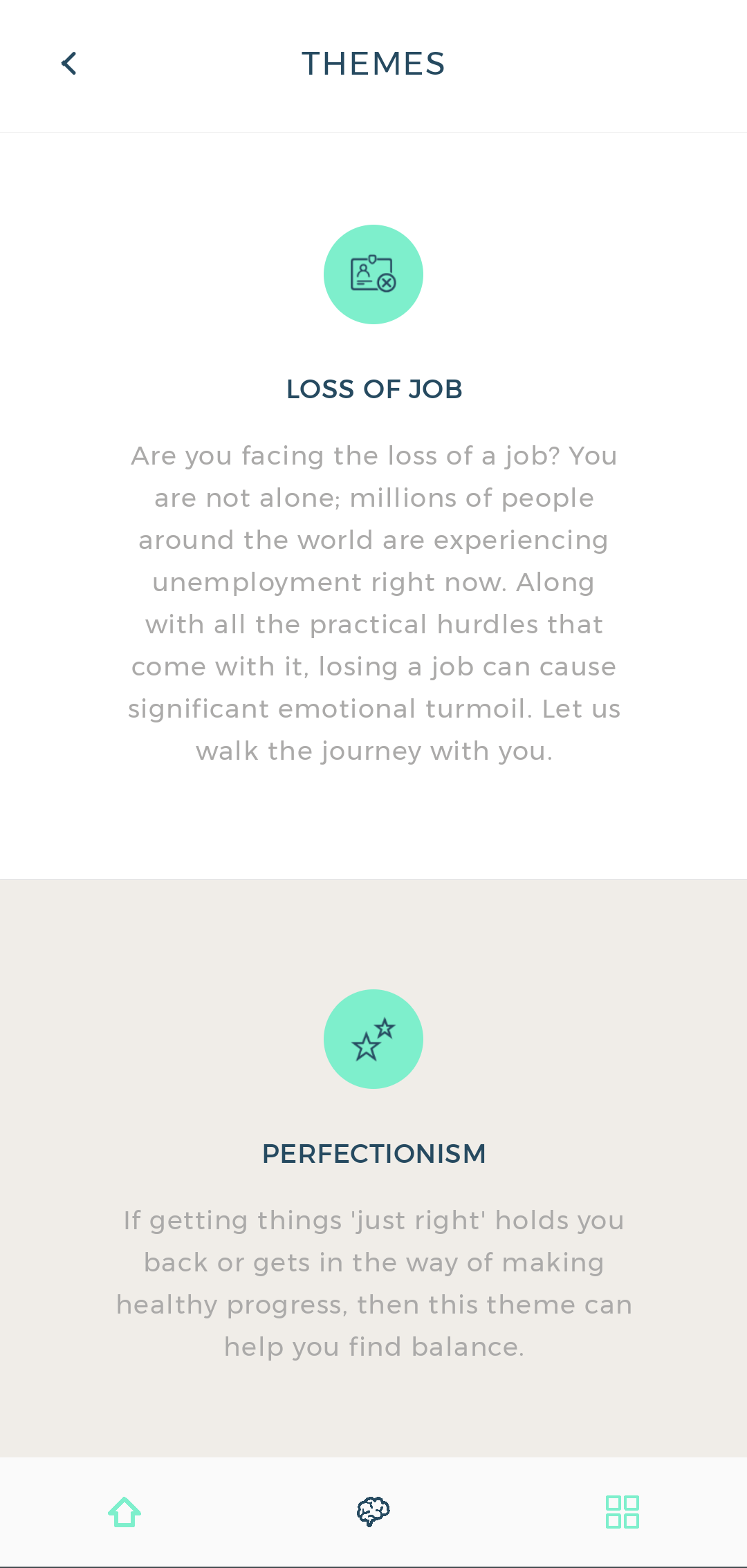
It's not a good sign when an app makes you constantly wonder what it actually does.
Even though Thinkladder’s concept is interesting, its functions are too vague and insubstantial to be of much use, especially to someone who needs solid mental health advice.
Basically, the app takes you through a series of statements related to particular themes and problems. In the end, you reach general insights that may or may not inspire you.
Whether you just remember them or turn them into goals is up to you, but this is the most you can expect from Thinkladder in its current form. Since the app barely satisfies any of the ideal criteria above, it doesn't earn its place in your list of mental health tools.
Download: Thinkladder for Android | iOS (Free, in-app purchases available)
Learn How Technology Can Affect Your Mental Health
Knowing what resources you can rely on is an important part of working on your mental health. And spotting what to avoid—whether it’s useless mental health apps or offensive people—is a key part of that.
If you spend a lot of time online, it can be difficult to make out what’s good or bad for you. To tackle this, be smart with your activities and watch out for red flags. Take care of yourself by countering negativity in your environment and working to overcome its effects.

